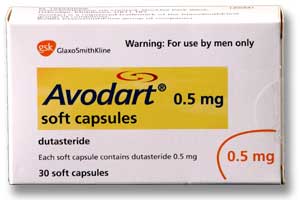Navigation
Hair Loss News Archives
July 2002
GlaxoSmithKline receives approval from the European Reference Member State for dutasteride to treat benign prostatic hyperplasia
GlaxoSmithKline plc (GSK) today announces that it has received approval from the Swedish regulatory authority (MPA) for dutasteride, a new treatment for benign prostatic hyperplasia (BPH).
The MPA have approved an indication for its use in the treatment of moderate to severe symptoms of BPH and for the prevention of acute urinary retention (AUR) and surgery in patients with BPH.
They have agreed to act as the Reference Member State for the Mutual Recognition procedure within Europe and GSK plan to market the drug in all major European markets once approvals are finalised.
Commenting on the approval, Dr Ray Dawson, Senior Director of Urology, European Clinical Development group at GSK said: "This is good news as it provides both patients and prescribers with a new treatment alternative. Clinical trials for dutasteride, involving over 4,300 patients suffering from BPH, have demonstrated that it provides long lasting symptom relief and positively impacts on BPH progression.

For instance, reductions over placebo in prostate volume were seen as early as one month and continued through the duration of the studies, which resulted in significantly reduced incidence of acute urinary retention and BPH related surgery. Both of these are key complications of BPH progression."
Dutasteride is the first 5-alpha reductase inhibitor (5ARI) that inhibits both the type 1 and 2 isoenzymes of 5AR. These enzymes are responsible for converting testosterone to dihydrotestosterone (DHT) in the prostate and other tissues, and DHT has been proven to play a key role in the development and progression of BPH.
BPH is a common benign growth in ageing men. It is this non-cancerous enlargement of the prostate gland that frequently causes lower urinary tract symptoms (LUTS). It is a progressive disease and if left untreated for a long duration this condition can give rise to a reduction in quality of life and result in complications such as AUR and surgery requiring hospitalisation.
Overall, in clinical trials, dutasteride was well tolerated and the most commonly reported adverse events as reported in the approved Summary of Product Characteristics were: Impotence (6%), altered / decreased libido (3.7%), ejaculation disorder (1.8%), gynaecomastia (1.3%).
Notes
An original NDA, with 1-year data for dutasteride in the treatment of symptomatic BPH, was approved by the FDA in November 2001.
A supplemental NDA with 2-year treatment data for dutasteride was filed with the FDA in December 2001 and the product will be launched in the US upon approval of the sNDA.
Current world-wide sales of treatments for BPH are £1,658 million.
It is estimated that over 17 million European men suffer from BPH.
Several factors are expected to contribute to an increased usage of 5ARIs including the growing number of patients suffering from BPH due to an ageing population, increased awareness of the condition and the trend towards preventing long term complications.
